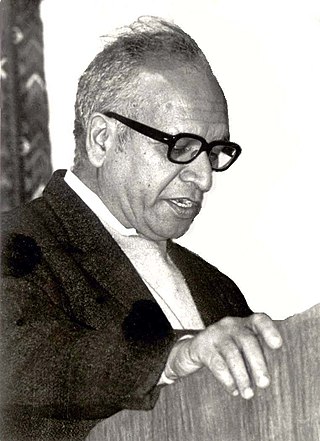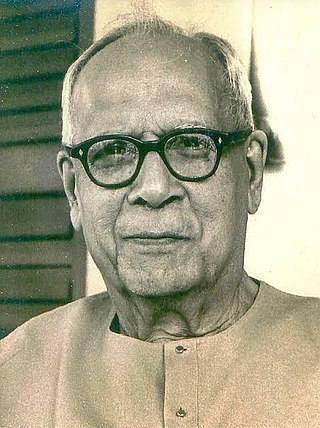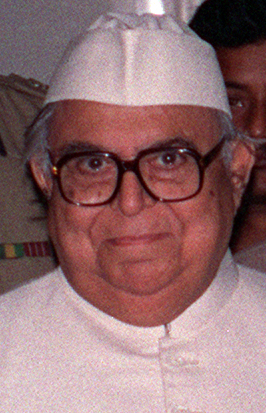
Dipesh Chakrabarty is an Indian historian and leading scholar of postcolonial theory and subaltern studies. He is the Lawrence A. Kimpton Distinguished Service Professor in history at the University of Chicago, and is the recipient of the 2014 Toynbee Prize, named after Professor Arnold J. Toynbee, that recognizes social scientists for significant academic and public contributions to humanity. He is the author of the seminal Provincializing Europe: Postcolonial Thought and Historical Difference (2000).
Indology, also known as South Asian studies, is the academic study of the history and cultures, languages, and literature of the Indian subcontinent, and as such is a subset of Asian studies.
Sumit Sarkar is one of the foremost historians of modern India. He is the author of Swadeshi Movementin Bengal, 1903-1908 (1973), Modern India (1989), and Writing Social History (1998), among others. He was a founding member of the Subaltern Studies Group as well as one of its most important critics.

Bipan Chandra was an Indian historian, specialising in economic and political history of modern India. An emeritus professor of modern history at Jawaharlal Nehru University, he specialized on the Indian independence movement and is considered a leading scholar on Mahatma Gandhi. He authored several books, including The Rise and Growth of Economic Nationalism.

Ramesh Chandra Majumdar was an Indian historian and professor known for promoting Hindu nationalist views. He principally studied the history of India.

Sir Jadunath Sarkar, was a prominent Indian historian and a specialist on the Mughal dynasty.
Partha Chatterjee is an Indian political scientist and anthropologist. He was the director of the Centre for Studies in Social Sciences, Calcutta from 1997 to 2007 and continues as an honorary professor of political science. He is also a professor of anthropology and South Asian studies at Columbia University and a member of the Subaltern Studies Collective.

Hare School is one of the oldest schools in Kolkata, India, teaching grades one to twelve under the West Bengal Board of Secondary Education and the West Bengal Council of Higher Secondary Education. It is a state government-administered boys school and was established by the Scottish watch-maker, David Hare. The establishment date is not agreed upon, but the official year of establishment is 1818. Thus the school is declared as the oldest western type school in Asia. The school is situated opposite the Presidency University, and is also adjacent to the University of Calcutta and Hindu School. The combined campuses of the Hare School and Presidency College is one of the largest in Kolkata.

Saiyid Nurul Hasan FRHistS,FRAS was an Indian historian and an elder statesman in the Government of India. A member of the Rajya Sabha, he was the Union Minister of State of Education, Social Welfare and Culture Government of India (1971–1977) and the Governor of West Bengal and Odisha (1986–1993).

Tapan Raychaudhuri was a British-Indian historian specialising in British Indian history, Indian economic history and the History of Bengal.
Barun De was an Indian historian. He served as the first professor of social and economic history of the Indian Institute of Management, Calcutta, founder-director of the Centre for Studies in Social Sciences, Calcutta and the Maulana Abul Kalam Azad Institute of Asian Studies, Kolkata and as the honorary state editor for the West Bengal District Gazetteers. He was chairman of the West Bengal Heritage Commission.
Brajendranath Dey was an early Indian member of the Indian Civil Service.

The Maulana Abul Kalam Azad Institute of Asian Studies is an autonomous research institute based in Kolkata. It is funded by the Ministry of Culture of the Government of India. It was founded on 4 January 1993. The foundation stone of the institute was laid where the new building now stands on 12 March 1993. It is devoted to the study of the life and works of Maulana Abul Kalam Azad, the eminent nationalist leader and India's first education minister, after whom it is named, and to the furtherance of Area Studies, with special reference to South Asia, Central Asia and West Asia, especially dealing with social, cultural, economic, political and administrative developments in Asia from the nineteenth century to the present. M.Phil.- and Ph.D.-level students of the University of Calcutta, Jadavpur University and Jawaharlal Nehru University, New Delhi are also associated with it.
Indian History Congress is the largest professional and academic body of Indian historians with over 35,000 members. It was established in 1935. The name of any new applicant for membership needs to be proposed and seconded by existing Ordinary or Life Members.
Susobhan Chandra Sarkar (1900–1982) was an Indian historian.

Jawhar Sircar is a retired Indian Administrative Services officer, who is prominent as a public intellectual, speaker and writer. He was elected to the Rajya Sabha, the upper house of the Parliament of India, on 2 August 2021 on an TMC ticket to represent the state of West Bengal.

Hari Shankar Vasudevan was an Indian historian, writer and emeritus professor. His work was primarily focused on history of Europe and India–Russia relations besides his contribution to the history of Russian and Central Asia. He served as the president of the Institute of Development Studies, Kolkata from July 2018 until he died in May 2020. His last publication was India and the October Revolution: Nationalist Revolutionaries, Bolshevik Power and Lord Curzon’s Nightmare, later published in multiple parts and volumes in the book titled The Global Impact of Russia’s Great War and Revolution (RGWR), and in its second book The Wider Arc of Revolution. It is also published in RGWR's second part titled Bloomington, Indiana: Slavica Publishers, 2019.
Tapati Guha-Thakurta is an Indian historian who has written about the cultural history and art of India. She is a director and professor in history at the Centre for Studies in Social Sciences, Calcutta, and was previously a professor at Presidency College, Kolkata. Her extensive research work on Kolkata's Durga Puja led to its inclusion in UNESCOs Intangible Cultural Heritage list.










